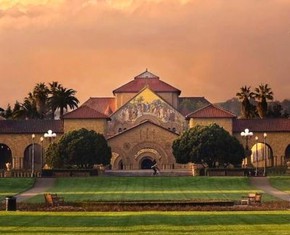The views expressed in our content reflect individual perspectives and do not represent the authoritative views of the Baha'i Faith.
Recently a state legislator shared the opinion on his website that: “Public education in America is socialism.”
Our educational system had been that way, he said, since the founding of the nation—and needed to be reformed so it could run as a free-market enterprise. In support of his view he invoked the free-market economist Milton Friedman, upon whose philosophy much of America’s economy functions.
The website has since been taken down, but at the time I engaged the legislator in a dialogue about his ideas. I pointed out that the founders of the American republic made education a public resource because they understood its importance for our progress as a people. I quoted John Adams:
The whole people must take upon themselves the education of the whole people and be willing to bear the expenses of it. There should not be a district of one mile square, without a school in it, not founded by a charitable individual, but maintained at the public expense of the people themselves. – Letter from John Adams to John Jebb, 10 September 1785, emphasis added.
Adams’s point is obvious: ”the whole people” must be educated or pockets of gross ignorance will develop. Further, the whole people must take on the responsibility for their collective education. We should not count on wealthy individuals to educate the whole people; endowing a school here and there will not achieve the purpose. Instead, as the Baha’i teachings so clearly point out, education should be obligatory for all children, regardless of means or gender—and should be supported by the entire community:
The Great Being saith: Regard man as a mine rich in gems of inestimable value. Education can, alone, cause it to reveal its treasures, and enable mankind to benefit therefrom. – Baha’u’llah, Gleanings from the Writings of Baha’u’llah, p. 260.
Were there no educator, all souls would remain savage, and were it not for the teacher, the children would be ignorant creatures.
It is for this reason that, in this new cycle, education and training are recorded in the Book of God as obligatory and not voluntary. … in no case is a child to be left without an education. – Abdu’l-Baha, Selections from the Writings of Abdu’l-Baha, pp. 126-127.
In addition, I’m not certain that the dictionary definition of socialism (”common management of the economy” or ”holding production means in common”) really applies to this universal model of education, but why is it a problem if it does?
Milton Friedman was an economist, not an educator. One of his chief tenets: businesses should have no goal beyond turning a profit. They should not concern themselves with ethics. Keeping them honest was the job of the public. The only effective way we have of doing that, of course, is through our elected government, which we can task with the responsibility of keeping businesses honest through regulation and oversight. That becomes difficult when businesses are willing to expend vast resources to subvert our attempts to protect our interests.
I noted that Friedman advocated a relationship between the public and private business that is based, not on mutual trust and cooperation (or even collaboration), but on mutual distrust and conflicting interests. Then I asked the legislator a question aimed at the underlying spiritual and social principle: Can you think of any institution that would thrive and progress under these circumstances?
He replied, ”I never said it would be free-market.” In response, I quoted the article to which I (and apparently a number of his constituents) had responded:
“In a free market system parents and students are free to go where the product and results are better. Common core and standardized tests under such a system will not be necessary, because the schools that fail will go out of business. Government will not be there to prop them up with more tax dollars and increased regulations. Successful schools will thrive. The free-market system works for cars, furniture, housing, restaurants, and to a lesser degree higher education, so why can’t it work for our primary education system?”
Taken at face value, this explicitly advocates a free-market system for education, as if knowledge were merely a commercial product and not a collective asset foundational to our society. According to the Baha’i writings, it is much more.
… the necessity of education for all mankind is evident. Children especially must be trained and taught. If the parent cannot afford to do this owing to lack of means, the body politic must make necessary provision for its accomplishment. Through the broadening spirit of education illiteracy will disappear, and misunderstandings due to ignorance will pass away. – Abdu’l-Baha, The Promulgation of Universal Peace, p. 317.
In the next part of this essay, I’d like to take a closer look at how we might measure a school’s failure or success.
You May Also Like
Comments

















The very fact that govt undertakes something, such as public education, is EXACTLY the definition of socialism. The nature of the enterprise or its reasons for existence are not arguments against the organizing structure of the enterprise. A public transportation system is every bit as socialist as are public schools.
The definition of socialism is something that is owned, funded and operated by govt. Public schools meet this definition.
Just because you stay the Friedman was an economist and not an educator is not a defensible argument, ...either. I have a degree in economics from UCLA and I am a retired public educator.